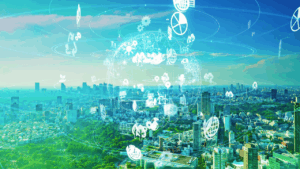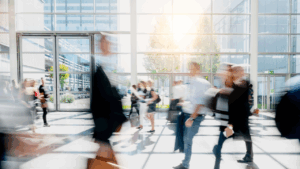At ECO Canada, we get to meet interesting people that are making an impact on the environment and within their communities. We were fortunate to catch up with Marvin Ward and Carol Crowe about their personal experiences with environmental education and their vision for the future of the environment within Canada.
About Marvin Ward
We met Marvin when he attended our Calgary Networking Event & Impact Awards in September 2017. Sometimes, inspiration comes unexpectedly – this was one of those times. Marvin had come to hear Carol Crowe speak on Indigenous Relations & Education and we soon learned that Marvin is a proud graduate of our BEAHR training program in Environmental Monitoring. Marvin’s participation in this program spurred him to launch his own business in environmental consulting and consultation. Not only is he a BEAHR graduate and a business owner, but he is a respected Elder of the Enoch Cree Nation.
He agreed to share his experiences with us and his journey to discovering his roots and his connection to the land.
About Carol Crowe
Carol is an ECO Canada Licensed BEAHR Trainer and Principal of Indigenous Visions. Carol’s work focuses on training and educating Indigenous people to work in the environmental sector. Having delivered countless BEAHR programs across Canada, she is one of our most sought-after trainers. A master of words, Carol is able to deliver educational content to audiences in an engaging and inspiring manner.
Through her work in delivering BEAHR training programs, Carol combines environmental techniques with traditional First Nations knowledge.
Vision for the Environment
We asked Carol and Marvin to describe how they envision our environmental future.
Marvin:
I see in my ceremonies, I see in my dreams at night that it’s crying out for help. It’s very emotional, but our environment is in dire need of help right now. It’s dying. It’s been hurt. What we do to it, how we’re digging, putting in pipelines, everything…it takes a long time for the earth to repair itself. That’s one of the things I learned in the BEAHR program.
The environment has taken a good hit. Seeing some of the results from climate change – mother earth is telling us something but now we’re doing something about it. Government is finally listening, I’m afraid it’s a little too late but we’re finally cleaning up our act but the regulations are getting stricter.
Carol:
What is great, seeing a change in our young people taking these programs and having some awakening on what they can do and how they can participate. Bridging the two worlds to look at innovations, to help reduce the impacts and cleanup.
It’s all about healing in the big picture, it’s holistic.
Indigenous Engagement
How do you think First Nations should engage with environmental issues?
Carol:
We have an opportunity here for monitors to be part of every part of human development. We missed that industrial revolution so now that we have a chance to be engaged with what these industries are doing – we can participate a lot more actively in trying to figure out how to reduce these impacts.
Marvin:
The last chapter of my life is telling people about the environment, the awareness, the impacts. As first nations people, you have to understand that we have that traditional gift of knowledge and being connected out there. You have to use that gift, you can’t hold it, you have to spread it … that’s your job, so go out and send the message!
What’s type of advice would you give to Indigenous people wanting to get involved in environmental work?
Carol:
Get involved with your community where you can, get to know your elders, who knows what areas – plants, animals etc. Keep engaged with the western side, work with whoever you can: companies in your area, NGOs, government agencies – keep that communication open and ongoing. You need an entrepreneurs spirit, be ready to action and get out of your comfort zone, connect, talk. Get involved however you can, whatever you can do to make that awareness.
Perspectives on Leadership
Carol:
What the elders are telling us, the western scientists are validating. We need to look to them, our elders, the way we would a Ph.D. scientist. Both worlds know that there’s something we can do, but that there’s something wrong. We’re in this together. That two worlds approach, that’s really what it takes.
Leadership [is] not aware or understanding the opportunities that are there. If we can get more of our young people involved in these roles and they can educate their leadership…we need their leadership.
Marvin:
I can see a big change in leadership, in their awareness of the environment.
Perspectives on Education
What would you say to other participants who are considering taking the training?
Marvin:
Learn about it, know what’s going on, and read!
The BEAHR program opened up your mind to broader things, like how wetlands heal themselves. The BEAHR program, for an old guy like me, through the practices we did, when we went out, I learned a lot by going out and doing what was on the program. It made me more clear, the understanding of the environment and the impacts.
If you’re interested in our BEAHR training programs or becoming a BEAHR trainer visit www.eco.ca/beahr
Carol Crowe: Indigenous Visions
Marvin Ward: Mar-Leigh Environmental




